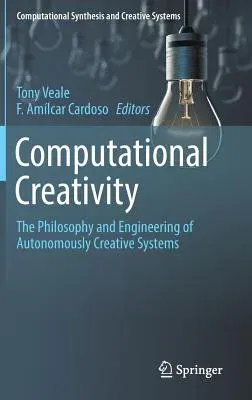Computational Creativity: The Philosophy and Engineering of Autonomously Creative Systems (2019)Hardcover - 2019, 7 August 2019

Qty
1
Turbo
Ships in 2 - 3 days
In Stock
Free Delivery
Cash on Delivery
15 Days
Free Returns
Secure Checkout

Part of Series
Computational Synthesis and Creative Systems
Print Length
398 pages
Language
English
Publisher
Springer
Date Published
7 Aug 2019
ISBN-10
3319436082
ISBN-13
9783319436081
Description
Product Details
Book Edition:
2019
Book Format:
Hardcover
Country of Origin:
NL
Date Published:
7 August 2019
Dimensions:
23.39 x
15.6 x
2.39 cm
ISBN-10:
3319436082
ISBN-13:
9783319436081
Language:
English
Location:
Cham
Pages:
398
Publisher:
Weight:
752.96 gm